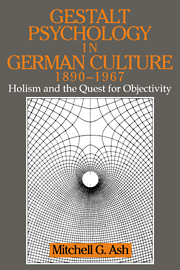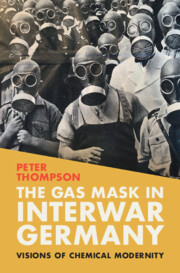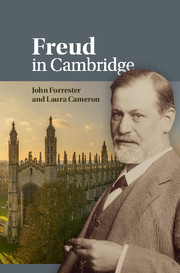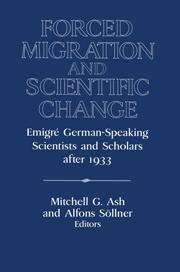Gestalt Psychology in German Culture, 1890–1967
This is the first full-length historical study of Gestalt psychology--an attempt to advance holistic thought within natural science. Holistic thought is often portrayed as a wooly-minded revolt against reason and modern science, but this is not so. On the basis of rigorous experimental research and scientific argument as well as on philosophical grounds, the Gestalt theorists Max Wertheimer, Wolfgang Köhler and Kurt Koffka opposed conceptions of science and mind that equated knowledge of nature with its effective manipulation and control. Instead, they attempted to establish dynamic principles of inherent, objective order and meaning in current language, principles of self-organization in human perception and thinking, in human and animal behavior, and in the physical world. The impact of their work ranged from cognitive science to theoretical biology and film theory. Based on exhaustive research in primary sources, including archival material cited here for the first time, this study illuminates the multiple social and intellectual contexts of Gestalt theory and analyzes the emergence, development and reception of its conceptual foundations and research programs from 1890 to 1967.
- A full-length historical study of Gestalt psychology in Germany
- Based on extensive archival research
- Challenges accepted viewpoints in history of German science and culture by showing that in this case holistic thought, natural science and democratic politics were compatible
Reviews & endorsements
"Mitchell Ash has written a book...that exemplifies the best current work in the social history of ideas." Geoffrey Cocks, Central European History
"Ash's book offers an ingenious web of various intertwined life histories....the book is a masterpiece....The book's expansiveness commands unadulterated admiration....His style undeniably displays an aesthetic view on research and writing....Ash writes in a clear, seeming effortless prose. His polished details include German words added between brackets. The well-chosen illustrations offer extra information and meticulously taken care of are the appendixes, notes and index." Trudy Dehue, Contemporary Psychology
"...a book that not only is the most comprehensive and authoritative narrative history of Gestalt psychology we are apt to see, but also a study concerened with recentering a number of our assumptions about what this research effort was all about-an effect achieved by situating it systematically in its various shaping, facilitating and constraining contexts: philosophical/intellectual....The work is particularly impressive for the author's dedication to integrating attention to the actual stuff of Gestalt psychology itself-the studies, what they were asking, how they were carried out-into a theoretically-sensitive, thickening and evolving narrative over more than a half-century of disciplinary formation, elaboration, and finally partially disintegration." Journal of the History of the Behavioral Science
Product details
October 1998Paperback
9780521646277
528 pages
228 × 152 × 24 mm
0.7kg
34 b/w illus.
Available
Table of Contents
- List of illustrations
- Preface
- Introduction
- Part I. The Social and Intellectual Settings:
- 1. The academic environment and the establishment of experimental psychology
- 2. Carl Stumpf and the training of scientists in Berlin
- 3. The philosophers' protest
- 4. Making a science of mind: styles of reasoning in sensory physiology and experimental psychology
- 5. Challenging positivism: revised philosophies of mind and science
- 6. The Gestalt debate: from Goethe to Ehrenfels and beyond
- Part II. The Emergence of Gestalt Theory, 1910–1920:
- 7. Max Wertheimer, Kurt Koffka and Wolfgang Köhler
- 8. Laying the conceptual and research foundations
- 9. Reconstructing perception and behaviour
- 10. Insights and confirmations in animals: Köhler on Tenerife
- 11. The step to natural philosophy: Die Physischen Gestalten
- 12. Wertheimer in times of war and revolution: science for the military and toward a new logic
- Part III. The Berlin School in Weimar Germany:
- 13. Establishing the Berlin School
- 14. Research styles and results
- 15. Theory's growth and limits: development, open systems, self and society
- 16. Variations in theory and practice: Kurt Lewin, Adhemar Gelb and Kurt Goldstein
- 17. The encounter with Weimar culture
- 18. The reception among German-speaking psychologists
- Part IV. Under Nazism and After: Survival and Adaptation:
- 19. Persecution, emigration and Köhler's resistance in Berlin
- 20. Two students adapt: Wolfgang Metzger and Kurt Gottschaldt
- 21. Research, theory and system: continuity and change
- 22. The post-war years
- Appendices
- List of unpublished sources
- Notes
- Index.









